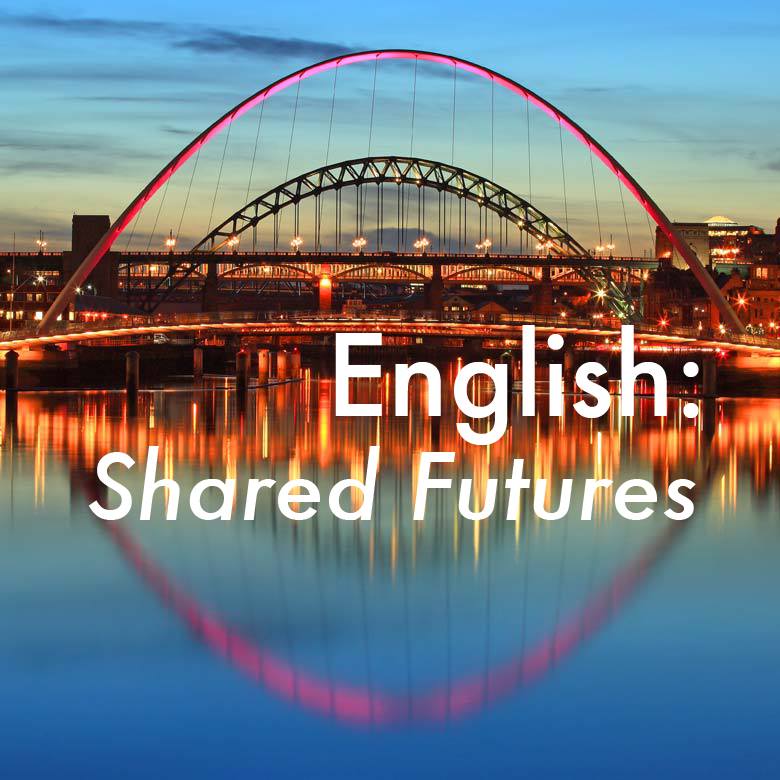 Creative writing often has an uneasy place teetering between English Literature and Education and occasionally going solo. PhD students in creative writing, Laura McKenna and Fiona Whyte were at the Shared Futures Conference in Newcastle earlier this month, where more than a hundred panels discussed pooling creativity and research strategies. Laura McKenna describes how they got on.
Creative writing often has an uneasy place teetering between English Literature and Education and occasionally going solo. PhD students in creative writing, Laura McKenna and Fiona Whyte were at the Shared Futures Conference in Newcastle earlier this month, where more than a hundred panels discussed pooling creativity and research strategies. Laura McKenna describes how they got on.
“Reflections on Time and Place” was a panel on historical fiction and since Fiona and I are committed exponents of the genre, it was an obvious choice for us. This was like having a pleasant discussion among a group of people with shared interests, which it was. We covered issues of inspiration, authenticity, the necessity (or otherwise) of spending time in “the place”, what research tools have proven useful, and the importance (or otherwise) of adhering to “known history”.
The result?
The panel and chair worked well together, and were a fine bunch of people (I would say that, wouldn’t I?) The two other panelists, Julie Primon and Paul Pattison, were PhD candidates, with historical fiction creative projects and the chair, Sean Baker, was also a doctoral candidate in creative writing. All the projects were interesting and covered different periods in time which allowed a diversity of responses. The “audience” was interested, participated and asked relevant questions of the panel.
Can you sense the big however hovering? Well, here it is.
Audiences were small – one of the problems with having up to fourteen panels running concurrently. Our panel was set up for the purpose of discussion but there were fewer than 10 in attendance. Given the aims of the conference, I was not sure who would be present to ask questions. Professional writers? Language experts? Critics? English literature academics? Creative writing theorists?
It was difficult to know how to pitch a presentation. Would it hinge on Place as a concept? Or Sense of Place? How have other writers dealt with issues of place, of authenticity, of voice and dialect? Why is there even a debate on the place of historical novels within the literary fiction genre? (perhaps not relevant to this panel topic).
These were all subjects we did not get to and which might have provided a meatier conversation. That’s not to say I could have answered the questions, but I still think it would have been a valiant and worthwhile exercise.
As an aside, on the issue of visiting “the place”, it’s impossible for me to visit most of my settings; New Brunswick, Fort Erie, St Louis, New Orleans, Charlestown, Antigua etc etc —though I wouldn’t say no to a travel bursary!
Creative Writing Discourse
“Creative Writing Discourse” was a panel with Jen Webb, University of Canberra; Katherine Coles, University of Utah; Paul Hetherington, University of Canberra and Paul Munden, NAWE. This session looked at the current state of play of creative writing programmes in the US, Australia and UK. What was interesting about this was the great disparity in emphasis on Critical/Academic vs Creative, both in terms of the proportion and the focus of the critical component.
Katherine Coles reported that (in general) the emphasis in the US is strictly on the creative output. It is considered that the critical requirement is addressed by course work (two years of PhD in literature course work followed by one year intensive reading then creative component). She herself is evaluated on basis of her creative output and is perceived to bring prestige to the university.
In Australia, CW must legitimize its existence as an academic programme, resulting in a strong emphasis on theory. While UK programmes place less emphasis on the critical exegesis than their Australian counterparts, there is little consensus on what the content should be (Theory? Process? Or nothing to do with the creative output at all in some cases?) or the length.
The issue of who should be admitted to a PhD programme was discussed and was thoughtful and thought-provoking. Some felt that many PhD candidates don’t have sufficient rigour in either academics or process, leading to speculation that applicants may sometimes be accepted because they bring in money to universities, and don’t require much in the way of facilities or input.
Other discussion points: Perhaps the US system of extensive coursework would make good this gap in academic grounding. Likewise the Australian system might benefit from the US workshopping approach instead of the hands-off independent work that is currently more common.
Literary salon meets Desert Island Discs
The great joy of the conference for me was an event that crossed a Literary Salon with Desert Island Discs: “John Mullan in conversation with Sarah Dillon”. Dr Mullan, is Professor of Modern English Literature at UCL. In my limited sphere he is the author of How Novels Work and countless articles and interviews on contemporary literature for The Guardian. He was funny, witty, erudite and quite the mimic. He read from his selection of four favourite or personally meaningful texts. And the word “read” does no justice to his delivery. His knowledge of and delight in Jane Austen in particular, was infectious.
He had stories about academics, about writers whom he has interviewed and he spoke of them in a manner that suggested ‘I shouldn’t really say this but I’m among friends’. He had some wonderful lines including one on Young Adult fiction: It’s the ladder you kick away. Of course, he’s a consummate professional on either side of the interview table, skilled at balancing humour with erudition.
If you haven’t heard him speak before — and I hadn’t — here’s a snippet from another interview. https://www.youtube.com/watch?v=DxPI4kkhmdY
